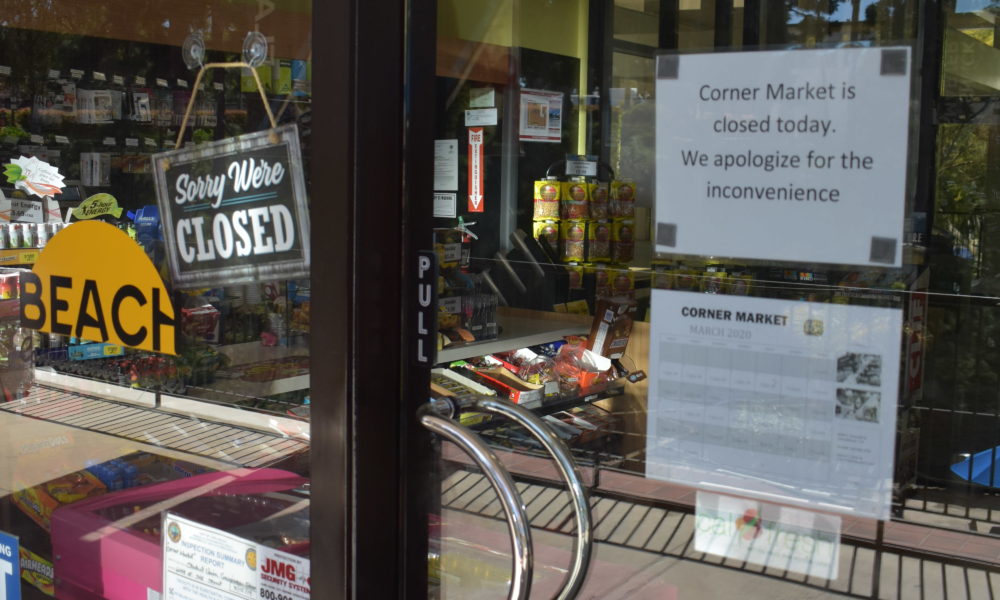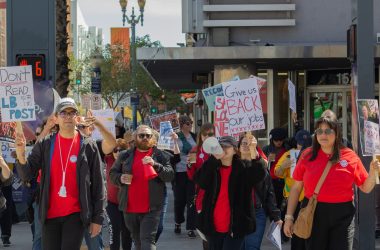By Matt James, Jason Solares, Julia Terbeche
Long Beach State’s Associated Students, Inc. has reported a $2.3 million loss in revenue due to coronavirus-related complications, leading to a furlough of about 400 student employees, according to campus officials.
Miles Nevin, ASI executive director, said that ASI currently employs about 50 of its usual 450 to 500 student employees after laying off the majority of its staff at the end of May, and has reduced full-time staff expenses through attrition, meaning vacancies left by these positions will not be filled.
In addition to the furloughs, ASI removed full-time positions in an effort to reduce expenses. Nevin said that ASI lost its webmaster and a teacher in the child care center, which are both positions that have yet to be filled.
“We’re saving some resources there,” Nevin said. “We’re doing that across the organization, and with all of those measures we’ve been able to get by.”
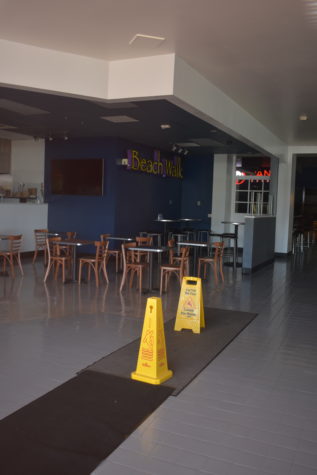
Following CSULB’s transition to online instruction in March, ASI events were canceled and ASI-run programs were rendered inaccessible to students, including the Student Recreation and Wellness Center and most of the resources inside the University Student Union. The University Dining Plaza, operated by the 49er Shops, was also closed.
Nevin said he doesn’t “anticipate discontinuation” of any programs or large-scale changes within the department and remains “optimistic that we will be back at some point soon” to resume in-person operation.
Students are still paying for resources like the SRWC included in the $68 ASI fee each semester as tuition and all student fees remain in full, though Nevin said that ASI is still losing “hundreds of thousands” from the closure of the gym.
While the SRWC is mainly funded by a portion of the student fee, it is also funded by staff, faculty and alumni memberships, “fees for service such as personal training and fitness classes,” rental of equipment and space for events and for leasing space to Robeks, according to Nevin.
“The elimination of all these non-fee-related revenues since March 2020 has had a significant impact on the SRWC budget,” Nevin said.
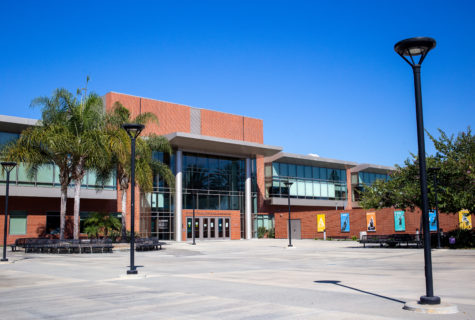
As a mainly student-run organization, ASI has had to reduce its operations significantly but has been able to keep some workers employed, including building managers for the USU and those on the communications team, according to James Ahumada, former senior communications manager for ASI.
Nevin said the transition to virtual learning for 2020-21 presented new budgetary concerns, “necessitating an amended operating budget.” After ASI’s operations paused March 13, an updated budget of over $16 million was approved April 29 with a 6.5% reduction in expenses.
This is a decrease of over $2.7 million, or 15%, from the operating budget from the beginning of the 2020-21 fiscal year.
Nevin also said that ASI has had to “dip into” its reserves, specifically $300,000 from the Associated Students fund. In addition to the AS fund, it also has a USU and SRWC fund.
“We are saving some funds by most of our operations being physically closed even though folks are at home working and doing things online,” Nevin said. “We are delaying our reserve contributions. This year, we’re delaying additional capital expenditures. We usually try to put in some extra money into our long term employee retirement obligations, and we’re not doing that right now.”
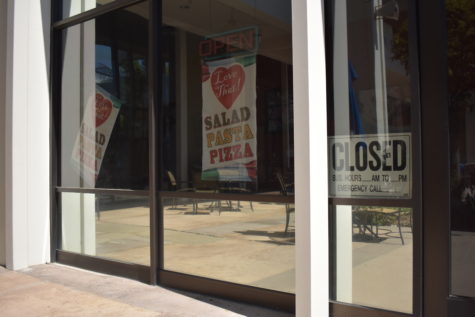
Compared to the 2019-20 fiscal year, the USU fees provided an increase of over $380,000 due a higher student headcount, and the AS fees brought in more than $589,000. Though both fees provided ASI with income, it was not enough to offset the overall revenue losses.
With only 2.8% of classes being held in person this fall, the university has kept the majority of its resources closed for the 2020-21 academic year. According to President Jane Close Conoley, the fall term has seen roughly 1,000 individuals visiting campus each day, compared to about 25,000 during previous semesters.
The significant decrease in students, faculty and staff coming to school each day has led the university to keep most of its buildings and businesses closed. Some have remained open, though, including the 49er Shops Bookstore, the Outpost Grill and the Coffee Bean & Tea Leaf in the USU.
ASI officials’ financial concerns led to the permanent closure of the recycling center, something Nevin called a “very tough decision.” A quiet fall has caused the UDP to see the closures of 49er Shops’ contracted establishments Panda Express, Starbucks and Squeeze Me. The Starbucks location in the library has also been closed.
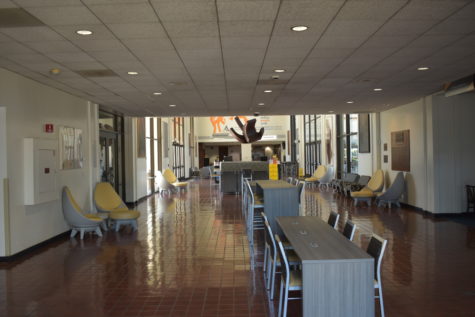
Aside from the dining plaza, the student union has also been essentially closed as most resources and activities have been temporarily suspended for the 2020-21 academic year.
“The USU is for the most part on pause, I think except for the computer labs that we’re going to try to be offering and continue to offer as long as students are coming,” Ahumada said. “[ASI is] more of a host. Think of the USU as a facility post, so we make sure it’s clean, we make sure it’s open, we make sure it’s organized, we make sure we have staff unlock and lock the doors and do the safety.”
While ASI essentially operates the USU, Academic Technology Services runs the computer lab program that provides students a place to complete schoolwork while the library and Horn Center have been closed this semester.
Although all vendors in the USU are currently closed due to a lack of business, they remain under contract and are expected to return when campus resumes its normal operations.
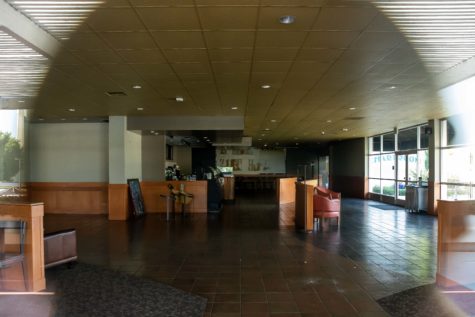
To rent a space in the USU, vendors have to pay for utilities and square footage, Ahumada said, which brings in over $2 million in revenue for ASI. With all food stalls closed in the USU this fall aside from the Coffee Bean & Tea Leaf, ASI is losing out on this source of income.
Nevin said that ASI has not been charging rent for the food vendors during this time in an effort to accommodate these small businesses facing difficulties brought on by coronavirus-induced changes.
“Right now we are really trying to help them because, although we’re hurting and our students are hurting, we know that those are small businesses, and they’re really hurting,” Nevin said. “[We’re] really trying to work with them. That’s not something we have to do, but we made the decision to do that to help them and to make it a little bit easier on them right now and on their employees.”
ASI’s reduction strategy, Nevin said, includes reduced building and utility expenses and expenses of ASI-related events, programs and services.
Many of ASI’s programs are being held online, including virtual SRWC classes and Beach Pride events. The student government meetings and other programs have been “going pretty well on virtual formats,” Nevin said.
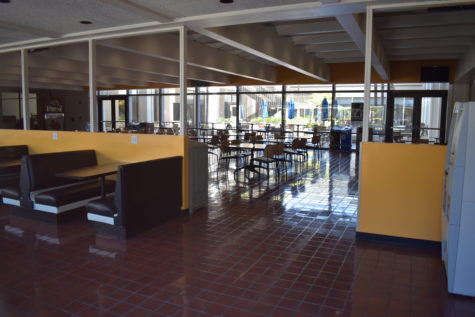
Relying on technology for operations has actually improved efficiency, Nevin said, for instance using DocuSign to electronically receive documents has streamlined accounting procedures.
Some virtual classes offered by the gym have seen more student participants than in-person classes saw prior to this semester, he said.
“What we’re doing through the rec center, all that is going really well and in some cases, which has really surprised me, we’re experiencing more attendance at some of those virtual fitness classes than we would in person,” Nevin said. “You are usually in a small room, and some of [these classes] are getting 100 students online.”
Although every university’s student organization is run differently, COVID-19 has hit other California State University campuses of a similar size just as hard.
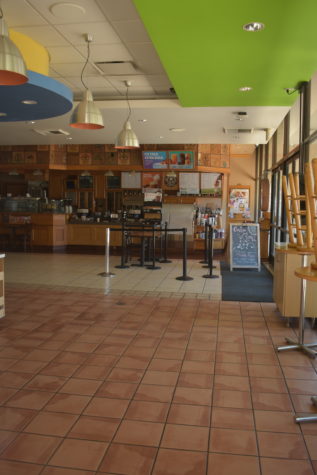
California State University, Fullerton, a campus with nearly the same enrollment as CSULB, has also been in the process of weighing its options regarding student government operations and is left without a solution. The campus saw a revenue loss of about $20 million due to the coronavirus, the Daily Titan reported in April.
Fullerton’s ASI Executive Director Dave Edwards said they are “still analyzing the financial impact of the pandemic” but maintained there is a “significant negative financial impact caused by the pandemic.”
“We are developing some methods to offset the loss, but in most situations, there simply isn’t a lot we can do,” Edwards said. “We are still doing assessments and planning. It has had a major impact [on revenue], that’s for sure.”
San Diego State University has also seen a $42 million revenue loss as a campus as a result of the coronavirus, according to the Daily Aztec. Although Christina Brown, Associated Students executive director, is still uncertain of how much the organization lost, she maintained that “it’s in the millions of dollars for sure.”
SDSU’s student organization rakes in the majority of its revenue from its 12,000-seat Viejas Arena, which hosts events like concerts and basketball games. With these in-person events canceled this year, though, Brown emphasized that the organization’s loss is “definitely larger than $2 million.”
“We have had a significant loss in revenue because there’s no concerts that have been happening since March. That’s a big revenue source for us,” Brown said.
Brown said she is trying to make up for the lack of income by “doing things the most efficient way.” Although full-time staff members have been furloughed, she said some student employees remain and have been running in-person events in the recreation center and classes at the Mission Bay Aquatic Center, including wakeboarding, windsurfing and sailing.
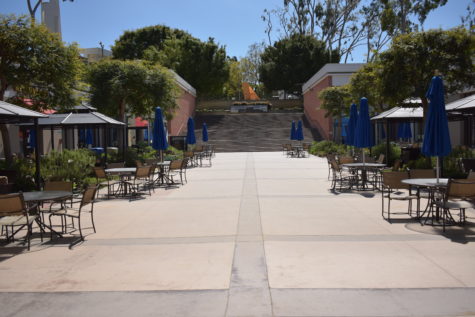
Although all of the CSU campuses’ student organizations are part of the student-led Cal State Student Association, which advocates for students’ needs in higher education across the system, the CSSA does not have any input or relation to the funding process.
Jeanne Tran-Martin, executive director of CSSA, said that the association is “currently receiving information about revenue from each campus” and will know by the end of 2020 regarding budgetary issues resulting from the coronavirus pandemic.
Nevin said that he feels encouraged by the collective efforts at CSULB’s ASI in “continuing to provide programs and services to students via alternative formats while implementing protocols to ensure staff and student safety and care.”
“I am hopeful and optimistic that through our continued patience and hard work we will navigate through the end of this pandemic and be able to reflect on our challenges and opportunities thereafter,” Nevin said.
Richard Grant, assistant photo editor, and Natalie Tinnirello, staff writer, contributed to the reporting of this article. This story was updated on Tuesday, Dec. 8 at 8:57 a.m. to correct information regarding the operation of the UDP.

